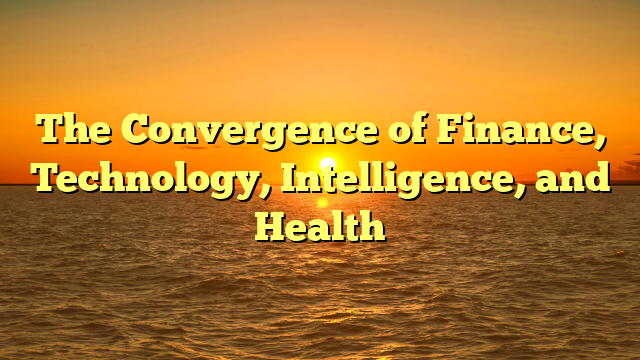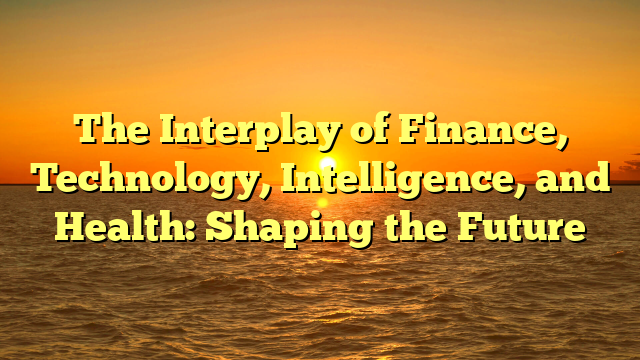
In today’s rapidly changing landscape, the integration of finance, technology, intelligence, and health is transforming industries and everyday life. This article will explore how these four powerful sectors are influencing each other and what the future holds for them.
Transforming Finance in the Age of Technology
In the past few decades, the financial sector has undergone a significant transformation due to technology, which has led to a shift in how financial services are delivered. The introduction of digital currencies, blockchain technology, and robo-advisors are just a few examples of how finance is becoming increasingly digital.
Digital currencies, such as Bitcoin and Ethereum, are challenging traditional financial systems, offering a decentralized alternative to banks. With the rise of blockchain technology, transactions are becoming faster, more secure, and less dependent on intermediaries like banks.
AI-powered robo-advisors are changing the landscape of investment management, providing affordable and efficient financial advice to individuals. This is democratizing wealth management, enabling more people to take control of their financial future.
Technology: The Driving Force Behind Innovation
The rapid pace of technological innovation is transforming industries, economies, and even our daily lives. From artificial intelligence (AI) and machine learning to the Internet of Things (IoT) and quantum computing, technology is opening up new frontiers in almost every field.
AI is having a profound impact on industries such as healthcare, finance, education, and transportation. AI enables machines to learn from data and make decisions that were once only possible for humans, making processes more efficient and effective.
In the healthcare sector, AI algorithms are helping to identify potential health risks, assist with diagnoses, and even suggest treatment options. This is leading to better patient care, lower costs, and more efficient healthcare systems.
The Role of Intelligence in the Modern World
The ability to think critically, analyze data, and adapt to new situations is what distinguishes successful individuals and organizations. In the context of artificial intelligence, we see machines augmenting human intelligence, enabling us to solve problems faster and more accurately than ever before.
AI offers exciting opportunities to enhance human capabilities and improve decision-making. For instance, AI-powered tools are helping researchers analyze vast amounts of data to make groundbreaking discoveries in medicine, climate science, and other fields.
Furthermore, the integration of AI and human intelligence is revolutionizing education and learning. With AI, students can receive tailored instruction that adapts to their individual learning styles, helping them achieve their full potential.
Health: Advancing Well-Being in the Digital Age
The healthcare industry has also been significantly impacted by technological advances. From telemedicine to wearable health trackers, technology is empowering individuals to take control of their health and well-being like never before.
Telemedicine has become particularly important in recent years, especially during the COVID-19 pandemic, allowing patients to consult with doctors remotely. This has increased access to healthcare for individuals in remote areas and reduced the strain on healthcare systems.
Wearable technology is another innovation that is transforming healthcare. These devices can detect early signs of health problems, allowing for proactive intervention and potentially saving lives.
AI-driven healthcare solutions are being used to analyze data from medical records and wearable devices to predict potential health issues. This is leading to more personalized and efficient healthcare, ultimately improving patient outcomes.
What Lies Ahead for These Interconnected Sectors
Looking ahead, the convergence of finance, technology, intelligence, and health will continue to drive innovation and create new opportunities. As sada , blockchain, and digital health technologies continue to develop, we can expect even more dramatic changes in how we live, work, and interact with the world.
In finance, we may see a shift toward more decentralized systems, where individuals have greater control over their financial assets. Similarly, advancements in technology will continue to enhance human intelligence, enabling us to solve problems and create innovations at an even faster pace.
The future of healthcare will see even greater advancements in AI and wearable technologies, leading to improved patient care and healthier societies.
The convergence of finance, technology, intelligence, and health will lead to new solutions and opportunities that benefit individuals and society as a whole. With continuous advancements and collaboration, the potential for growth and improvement in these sectors is limitless.





